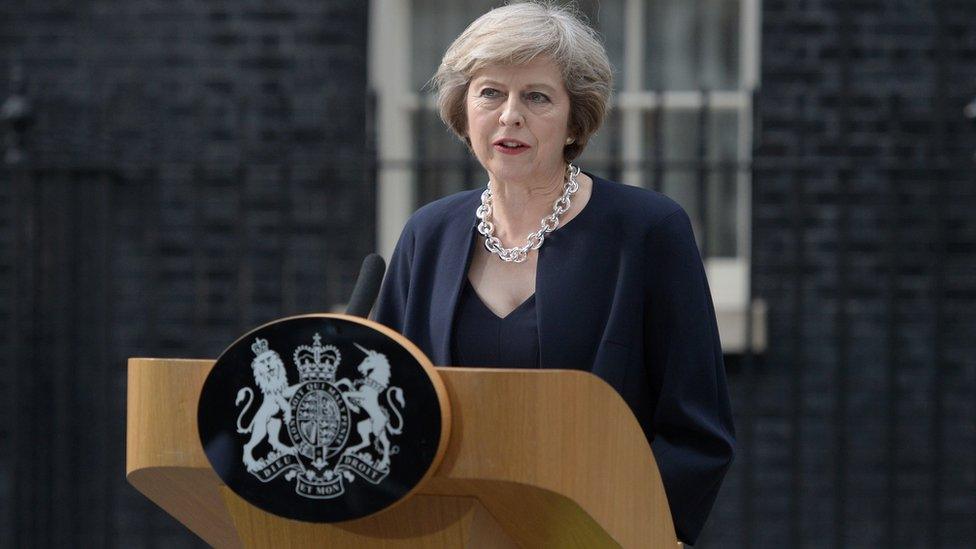Theresa May urges rival parties to 'contribute and not just criticise'
- Published
- comments
Theresa May met her Australian counterpart Malcolm Turnbull in Downing Street
Theresa May is to call on rival parties to "contribute and not just criticise" as she signals a post-election change in her style of government.
In a speech on Tuesday the PM will say she still wants to change the country, but will say that losing her majority means a new approach is needed.
Labour says it shows the Conservatives have run out of ideas.
But First Secretary of State Damian Green said it was a "grown-up way of doing politics".
Ministers loyal to Mrs May have dismissed reports of plots to remove her as drink-fuelled "gossip", but Labour remains on an election footing, with leader Jeremy Corbyn saying he hopes for a fresh poll in September.
Mrs May will return to the message from her first day in Downing Street last July, when she succeeded David Cameron, and vow to lead what she called a "one nation" government that works for all and not just the "privileged few".
The speech is being seen by some as a "re-launch" or "fightback" after Mrs May lost her majority - and much of her authority - in the snap election last month.

Analysis
By BBC political correspondent Chris Mason
Theresa May's speech is a pitch for cross-party consensus.
"Come forward with your own views and ideas about how we can tackle" the challenges the country faces, Mrs May will say, adding: "We may not agree on everything, but ideas can be clarified and improved and a better way forward found."
Bluntly, it is an explicit acknowledgement of her fragility; her authority and majority shrivelled.
Government sources say it is a mature approach that maintains a commitment to taking on big, difficult and complex challenges; not just Brexit but reform of social care, too, for instance.
Labour says Mrs May's speech proves the Conservatives have "completely run out of ideas" and were reduced to "begging" for policy proposals from them.

In her speech, the PM will say that although the result of June's election was not what she wanted, "those defining beliefs remain, my commitment to change in Britain is undimmed".
Her "belief in the potential of the British people and what we can achieve together as a nation remains steadfast, and the determination I have to get to grips with the challenges posed by a changing world never more sure", she will say.
She will unveil a review - of casual and low-paid work - by Matthew Taylor, a former top adviser to Tony Blair, which she commissioned when she became prime minister.
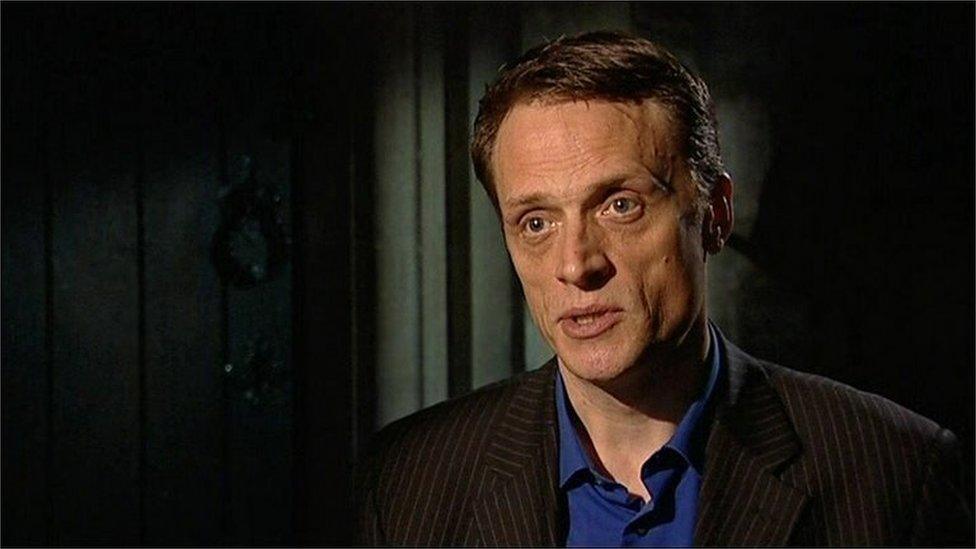
Matthew Taylor will publish his employment review on Tuesday
It is thought Mr Taylor, who has been examining the use of zero-hours contracts and the rise in app-based firms such as Uber and Deliveroo, will stop short of calling for a compulsory minimum wage for those employed in the so-called gig economy, who do not have guaranteed hours or pay rates.
But he is expected to propose a series of extra rights for those in insecure jobs and could also recommend shaking up the tax system to reduce the gap between employees and the self-employed.
He is also likely to call for measures to improve job satisfaction for people working in minimum wage jobs, according to The Guardian., external
'Battle of ideas'
In her speech, Mrs May will say: "When I commissioned this report I led a majority government in the House of Commons. The reality I now face as prime minister is rather different.
"In this new context, it will be even more important to make the case for our policies and our values, and to win the battle of ideas both in Parliament as well as in the country.
"So I say to the other parties in the House of Commons... come forward with your own views and ideas about how we can tackle these challenges as a country.
"We may not agree on everything, but through debate and discussion - the hallmarks of our parliamentary democracy - ideas can be clarified and improved and a better way forward found."
The PM has a programme for Britain that will spread prosperity, the first secretary of state tells Today
She will acknowledge the fragile nature of her position in the Commons but insist it will not stop her taking "the bold action necessary to secure a better future".
Speaking at a press conference with Australian counterpart Malcolm Turnbull on Monday, Mrs May said she had sought input from other parties in the past on issues like counter-terrorism and modern slavery.
She also said she was happy to work with Labour's Yvette Cooper and others in a cross-party approach to tackling intimidation and online abuse of MPs and others involved in the political process.
Asked if her desire for co-operation extended to Brexit, including on the government's Repeal Bill when it is published later this week, the prime minister said she was seeking the "broadest possible consensus" surrounding the terms of the UK's exit.
But former shadow business secretary Chuka Umunna said people would take the calls for cross-party working with "a lorry load of salt" - and he questioned why Mrs May had not raised the issue a year ago when she entered Number 10.
"The reason she wasn't asking for it then was she didn't need to," he said.
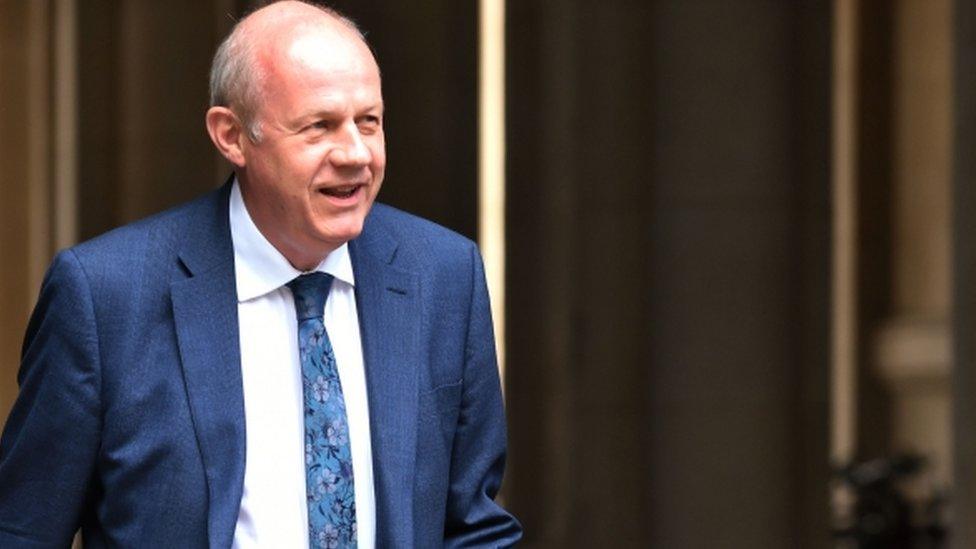
Damian Green: This is a grown up way of doing politics
Lib Dem Brexit spokesman Tom Brake said: "A call for Labour to contribute is superfluous. On the single biggest issue of our generation, Brexit, Corbyn isn't contributing, he is cheerleading."
Scottish Government Brexit minister Michael Russell said: "If the prime minister is genuinely interested in creating a consensus then Scotland should have a seat at the negotiations to leave the EU."
But Mr Green, who has known Mrs May since university and is effectively her deputy prime minister, said the public would welcome a move away from politics in which parties "just sit in the trenches and shell each other".
"Politicians of all parties are invited to contribute their ideas - that's a grown up way of doing politics," he told BBC Radio 4's Today programme.
Parties 'poles apart'
He said Mrs May was motivated by "her duty" to carry on, adding: "She still has the same ambitions for this country as she had a year ago and she's determined to put them into practice for the good of this country - that's what drives her."
Asked if the PM could be tempted to step down after her summer holiday, he said: "No. She thinks not just that it's her duty, but she has a programme for Britain that encompasses not just a good Brexit deal, but also a domestic agenda that will spread prosperity around this country, make this a fairer society, tackle some of the injustices that we still have in our society - and that fire burns within her as strongly as ever."
The BBC's assistant political editor, Norman Smith, said that the Conservatives and Labour were "poles apart" on many significant policy areas.
He told BBC Radio 4's The World at One: "More brutally, Jeremy Corbyn is not minded to help Theresa May. He smells blood in the water.
"He wants to do everything he can to stampede Mrs May into another election, so the idea he might somehow seek to cooperate with her, I think, is bordering on the fanciful."


- Published9 July 2017
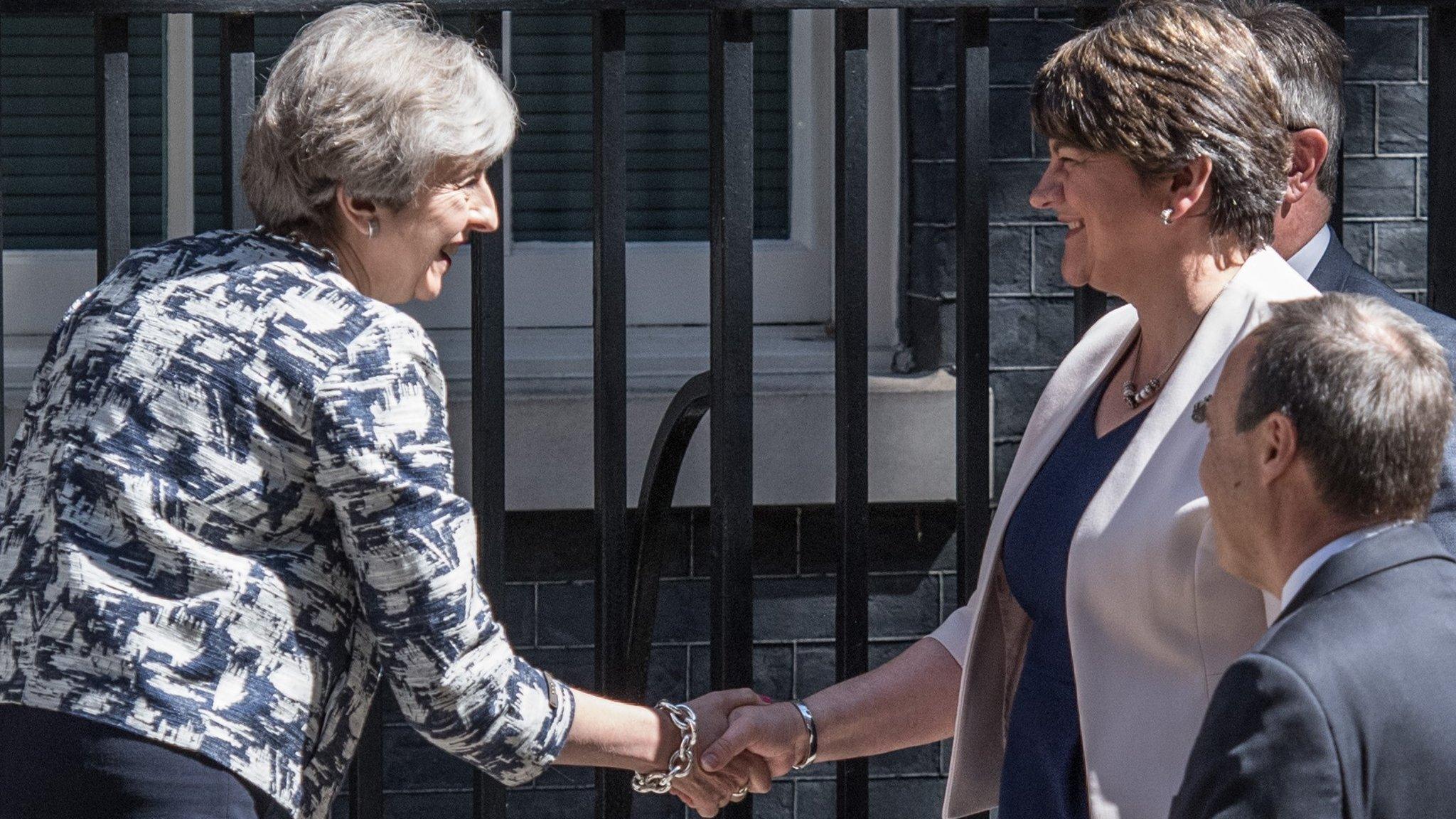
- Published9 July 2017
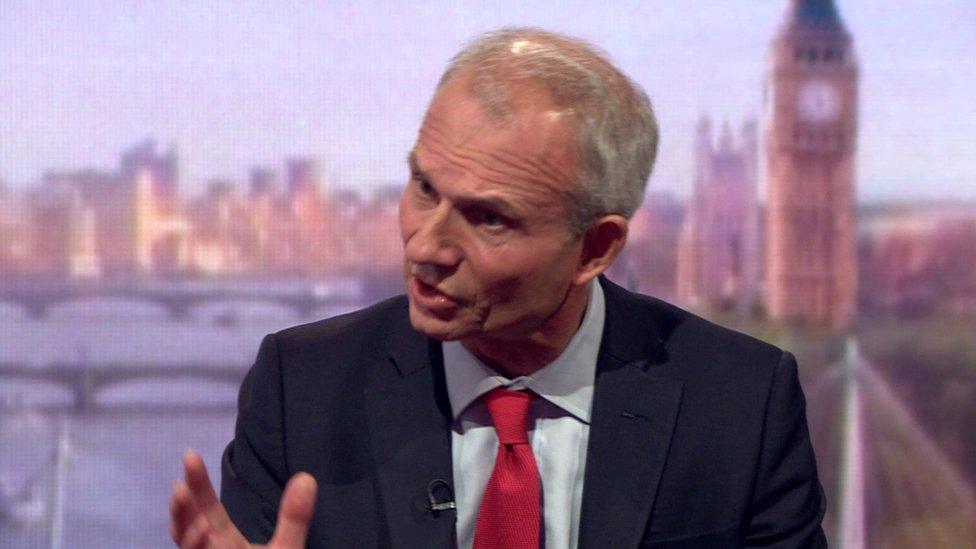
- Published8 July 2017
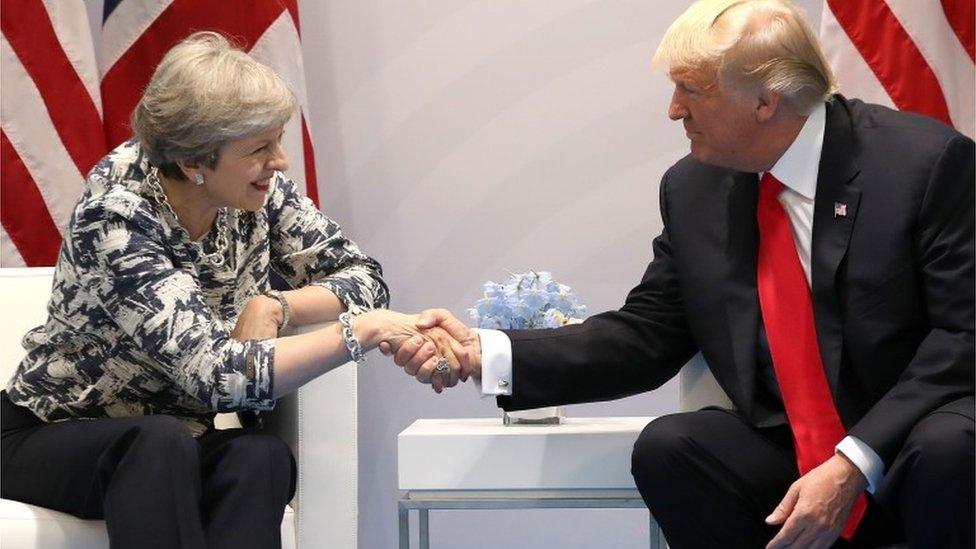
- Published7 July 2017
- Published13 July 2016
